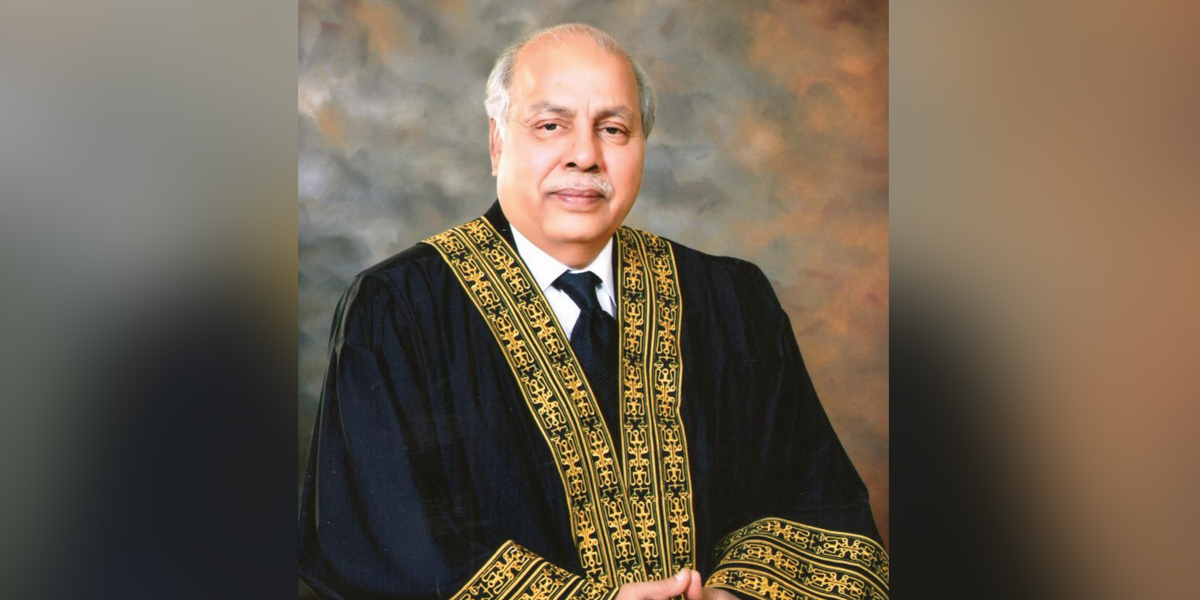Imagine a courtroom where litigants and their counsels raise their voices and wave their hands to get attention of their lordships but the lordships – instead of showing displeasure – politely advise them to wait until their cases are called for hearing by the court reader.
“Khan Sahib, be patient. We will hear whatever you have to say but let this gentleman complete his arguments first. Where is the KDA [Karachi Development Authority] master plan? The map clearly shows this land is for a park.
“Where is the commissioner? Why haven’t you taken any action against this illegal construction?”
Such were the usual vibes emanating from the courtroom of the outgoing Chief Justice of Pakistan, Gulzar Ahmed, whenever he would head a bench at the Karachi registry of the Supreme Court and hear public interest cases regarding countless issues being faced by people of the megacity.
Sometimes, the reporters covering the proceedings would get bored with the punctiliousness with which Justice Gulzar would try to locate a plot on the map of this gigantic city to ensure that the number and type mentioned in an application are correct.
Before becoming the chief justice, he was sent to hear public interest cases at the SC’s Karachi registry.
However, when he became the top judge he took upon himself the task of hearing cases regarding encroachments of the city’s amenity plots and their conversion for commercial and residential purposes. And to decide as many cases as possible, he would stay in Karachi for a few days almost every month.
In an important judgment, during his last month in office, Justice Gulzar – as head of a bench – declared allotment, possession and lease of a 200 acre piece of land at Karachi Municipal Park – Gutter Baghicha – to the Karachi Municipal Corporation (KMC) officers’ housing society illegal. This judgment effectively brought an end to an over three-decade-old litigation in the Sindh High Court (SHC) on the same issue.
“His style of conducting hearings in the courtroom has given the courage to masses to approach the highest court of the country for redressing their grievances against government institutions,” said a senior lawyer who is a friend to Justice Gulzar from his law-practice days.
Another lawyer who happened to be a common friend of both Justice Gulzar Ahmed and Justice Maqbool Baqar – another SC judge – described Justice Gulzar as a simple, straight forward, honest and uncompromising person.
“He is a sound and clear legal mind. Even in his practice days he would advise a litigant not to waste his/her money, if after seeing a case file he formed the opinion that law did not provide the relief the litigant was seeking,” said the friend.
“He had a humble background and he became the chief justice of Pakistan solely because of his commitment to his profession and by not shying away from professional training and acquiring knowledge at any stage of his career,” he added.
While the legal fraternity as a whole appreciate honesty and uprightness of Justice Gulzar, bar bodies of the country fiercely opposed his decision to initiate the process of elevation of two junior high courts judges to the Supreme Court.
The bar bodies held strikes on the days when the Judicial Commission of Pakistan (JCP) – a key constitutional forum responsible for elevation of judges to superior courts – met to consider and approve names of the people nominated by Justice Gulzar for elevation to the Supreme Court.
As the JCP has decided to elevate the judges proposed by Justice Gulzar to the Supreme Court, bar bodies have decided to not to attend the traditional receptions that are given to welcome the new chief justice of Pakistan and bid farewell to the outgoing one.
While many in the legal fraternity did not appreciate Justice Gulzar’s decision to demolish Nasla Tower – a multi-story residential complex –in Karachi, many others appreciate it wholeheartedly.
They argue that the judgment has sent a strong message to powerful builders mafia that henceforth committing grave illegalities and getting away with them in the name of regularization would not be possible while those investing in real estate would also exercise due diligence in the future.
His admirers believe that Justice Gulzar – who also hails from Karachi – would have got all encroachments removed from the city had he gotten only a few more months before finally hanging up his spurs on February 1, 2020 after serving for two years and 42 days as the chief justice of Pakistan.

















